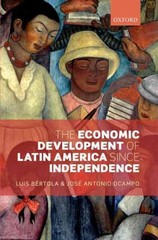Question
1 Coffee Company is a medium-sized company with a number of branches across the country. Having previously raised capital from the private debt markets, the
1 Coffee Company is a medium-sized company with a number of branches across the
country. Having previously raised capital from the private debt markets, the company
has experienced rapid growth with profits increasing each year. The company is now
considering raising debt through the public corporate debt market and is considering a
formal credit rating.
(i) Describe the main areas that a credit rating agency would consider in
determining a credit rating for Coffee Company. [9]
(ii) Suggest, with reasons, why Coffee Company may:
(a) want to raise debt through the public corporate debt market.
(b) be keen to attain a formal credit rating.
2 A large investment fund currently invests all of its assets in global equities. It has
decided to move a large proportion of the fund from US equities into emerging market
equities.
(i) Outline two strategies to make the switch using derivatives. [2]
(ii) Compare these strategies with each other and to buying and selling the
physical assets. [6]
(iii) Discuss the risks introduced by entering into the derivative strategies above
3 (i) State what is meant by behavioural finance. [2]
(ii) Explain the types of biases that can affect an investor's view of the probability
of an event occurring that is outside their control, such as a property market
crash. [2]
(iii) Explain the main behaviour being exhibited in each of the following scenarios:
(a) A pension scheme has been advised by the same investment
consultancy over a five-year period. The trustees are now carrying out
a review to decide whether they would like to continue working with
this investment consultancy or appoint a new investment consultancy.
During the selection process the trustees decide to re-appoint the
current consultancy, even though other firms had clearly given better
presentations.
(b) A group of pension scheme trustees has seen high returns in their
equity portfolio over the last five years and views among market
commentators suggest this performance will continue. The trustees
decide to increase their allocation to equities in order to generate
further returns for the scheme.
(c) Market commentators have been suggesting for several months that
equity valuations are not justified and they expect a market correction.
However, an equity trader who is investing their own portfolio has
allocated a large proportion to equities.
(d) A pension scheme has experienced an increase in its deficit as a result
of falling government bond yields. (The falling yields have resulted in
a higher value for the scheme's liabilities and the scheme's assets have
not kept pace with this rise.) Given the low level of government bond
yields and market commentary that suggests that yields are at 'all time
lows' and are expected to rise, the scheme's trustees are reluctant to
invest in assets which would help protect their portfolio against further
falls in government bond yields.
(e) An investment consultant comments on the poor performance of a
hedge fund's strategy. The consultant believes that the hedge fund
should have been able to foresee market events based on historic
market data, although the consultant did not provide any views on
hedge funds prior to this.
Step by Step Solution
There are 3 Steps involved in it
Step: 1

Get Instant Access to Expert-Tailored Solutions
See step-by-step solutions with expert insights and AI powered tools for academic success
Step: 2

Step: 3

Ace Your Homework with AI
Get the answers you need in no time with our AI-driven, step-by-step assistance
Get Started


